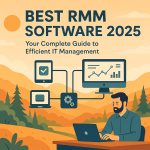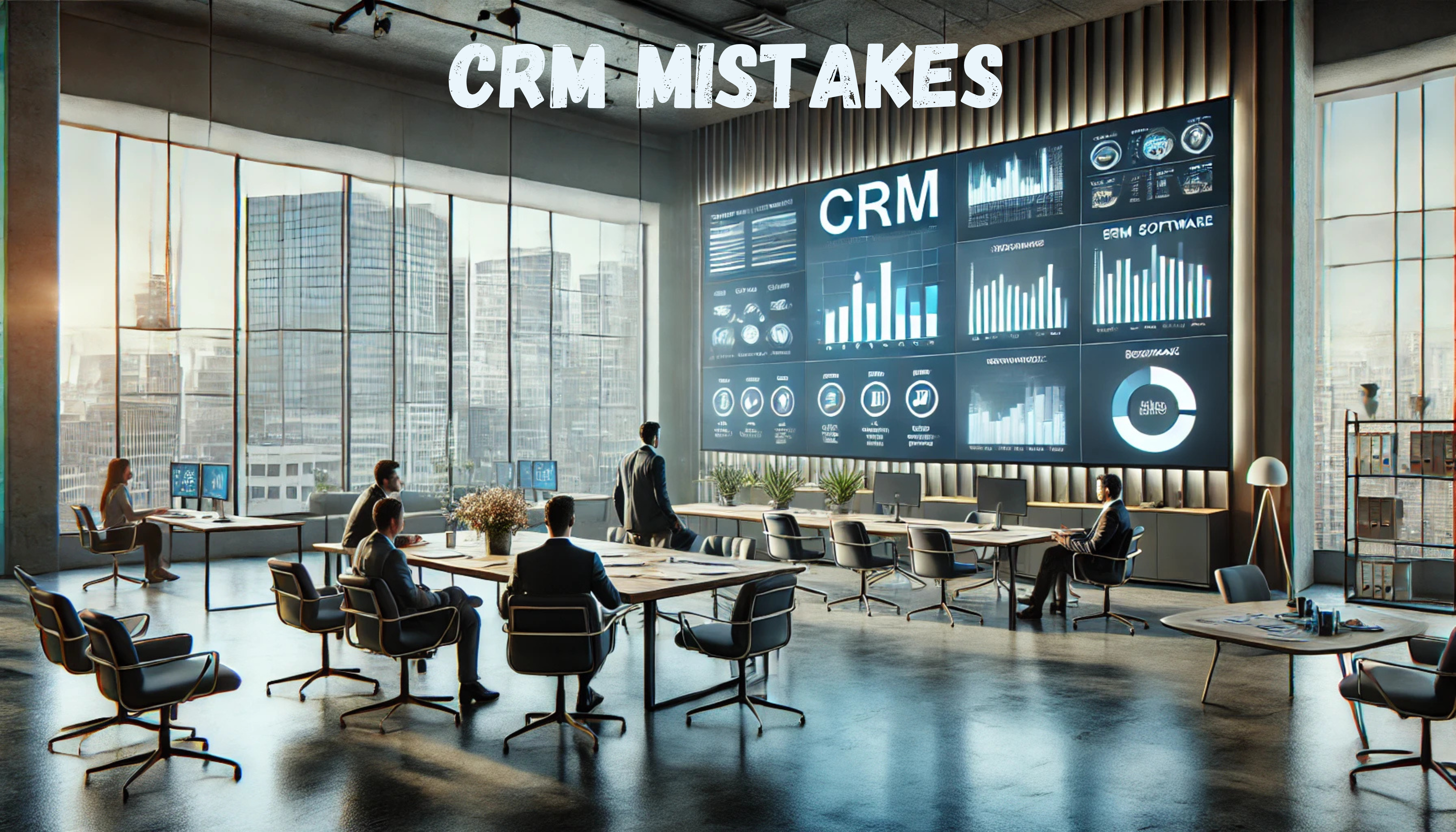Best CRM for Real Estate Investors – Top Picks
The real estate market is all about information, precision, and building strong relationships. Client relationship management for investors is more than just a tool; it’s crucial for success. The best CRM software helps investors manage their investment portfolio CRM better. It makes communication smoother and decision-making more effective.
With the right Real estate investor software, managing properties becomes easier and more profitable.
In today’s fast-paced market, smart investors use the best top CRM tools for property management to stay ahead. These tools do more than track client interactions. They offer a wide range of features to boost your property portfolio’s value.
The secret to success in real estate is organizing and optimizing every relationship and deal. It’s about using data to predict trends and meet client needs before they ask.
Key Takeaways
- CRM software as a critical foundation for real estate investment success.
- How top CRM tools strengthen property management practices.
- The transformative effect of investment portfolio CRM on investor decision-making.
- The significance of choosing the right real estate investor software for business growth.
- The strategic role of client relationship management in fostering lucrative investor relationships.
Understanding CRM Software in Real Estate Investment
Customer Relationship Management (CRM) software is key in real estate investing. It makes operations smoother and improves investor relations. By looking into the real estate CRM benefits, we see how important these tools are for staying ahead in the market.
What Is CRM and Why It Matters for Real Estate Investing
CRM software is a central hub for managing investor and client interactions. It makes tasks like investment deal tracking and real estate investor client management easier. This lets investors focus on big decisions, not just paperwork.
A good CRM system keeps client data, handles communications, and tracks deals. It’s essential for keeping everything organized and on track.
The Role of CRM in Managing Real Estate Deals
Managing real estate deals well is crucial for success. A CRM system for real estate pros integrates many useful features. It helps track current investments and find new ones.
With CRM, you can quickly get reports and updates on property deals. This makes it a vital tool for real estate investors.
CRM also helps with deal tracking, document management, and staying compliant. This boosts efficiency and reduces the chance of missing out on opportunities.
In summary, CRM software brings many benefits to real estate investments. It improves management, client interactions, and investment success. As the real estate market grows, CRM systems become even more important for staying competitive.
Navigating the Features of a Great Real Estate CRM
Exploring the key features of real estate CRM shows how crucial they are for real estate investors. Tools like lead generation, marketing automation, and detailed reporting are vital. They help investors manage tasks better and make smarter decisions.
One of the best things about these CRMs is their ability to automate tasks. They manage contacts well and make communication smooth. This saves time and makes sure every client feels special.
Using a CRM tailored to real estate investment needs translates into a significant competitive advantage by leveraging data driven strategies to optimize operational efficiency and client relationships.
- Lead Management: Track and nurture potential leads to improve conversion rates.
- Marketing Automation: Automate regular communications and marketing campaigns, ensuring consistent touchpoints with minimal effort.
- Analytics and Reporting: Generate detailed reports that provide insights into both the performance of investments and the overall business health.
Looking ahead, CRMs with advanced analytics and predictive models could change how we invest. The table below compares the most valued features by real estate pros.
| Feature | Importance | Example of Use in Real Estate |
|---|---|---|
| Lead Management | Critical | Tracking interactions and follow-ups with potential sellers and buyers |
| Marketing Automation | High | Scheduled emails and social media posts directed at target market segments |
| Customizable Reporting | Essential | Adaptable analytics dashboards to monitor real estate market trends |
In the fast-paced world of real estate investing, using a full-featured CRM functionality for investors is key. It boosts efficiency and improves investment results.
Evaluating Cost vs. Value in CRM Solutions
Choosing the right CRM for real estate investment is all about finding the right balance between cost and value. The CRM’s pricing affects your budget now and your business’s growth later. We’ll look at different pricing models and their ROI to help you choose wisely.
Comparing Pricing Models in Real Estate CRM
CRMs come with different pricing plans to meet the needs of real estate pros. Let’s check out the most common ones:
| Pricing Model | Description | Best Suited for |
|---|---|---|
| Subscription-Based | Monthly or yearly fee, often based on number of users or features. | Agencies looking for scalability and regular updates. |
| One-Time Purchase | Lump-sum payment for perpetual access, less common but includes essential updates. | Smaller firms or solo investors focusing on long-term cost saving. |
| Freemium | Basic features for free with optional paid upgrades. | New investors or startups testing the waters before committing financially. |
Assessing the ROI of CRM Investments for Real Estate
Seeing CRM tech as an investment, not just a cost, is key. Here’s what affects the ROI in real estate:
- Operational Efficiency: CRM systems make operations smoother, cut down on manual work, and let you handle more deals at once.
- Data-Driven Decisions: Better data collection and analysis lead to smarter decisions, reducing risks and boosting returns.
- Client Relationship Management: Better client interactions and personalized communication build lasting relationships and referrals, which are invaluable.
By weighing CRM pricing and ROI, real estate pros can boost their efficiency and stay competitive in the digital market.
Customization Capabilities for Real Estate CRM Systems
In today’s market, being able to adapt and customize tools is key, especially in real estate. Customizable CRM platforms are essential for professionals wanting to improve their real estate business. They help make the business more precise and efficient.
Finding a Flexible CRM to Match Your Real Estate Business Model
Every real estate business is different, with unique needs and goals. A CRM that can adapt is crucial. It should fit the real estate investment business model, whether it’s short-term flips or long-term rentals.
Adapting a CRM to fit your business can give you a big advantage. It ensures your business runs smoothly and makes more money.
Tailoring CRM Features to Individual Investment Strategies
Investment strategies in real estate vary a lot. Some investors aim for quick profits, while others focus on long-term growth. Customizable CRM platforms can be adjusted to fit these different strategies.
They help track progress, manage contacts, and automate tasks. This makes operations smoother and reduces mistakes. It’s vital for managing your business well.
| Feature | Benefit | Best Suited For |
|---|---|---|
| Contact Management | Streamlines communication | Flippers and Wholesalers |
| Deal Tracking | Monitors investment status | Long-term and Short-term Investors |
| Task Automation | Reduces manual work | All Real Estate Investors |
| Reporting and Analytics | Insights into performance metrics | Portfolio Managers |
Seamless Integration with Other Real Estate Tools
In today’s market, CRM integration in real estate is key. It connects with other tools smoothly. This makes a real estate business more efficient and gives investors up-to-date data.
Synchronizing investment tools across platforms helps real estate pros. They get better analytics, streamline work, and manage clients better. This is vital for staying ahead and serving clients well.
But, challenges like data issues or tool problems can slow things down. Advanced CRMs solve these by offering strong property management software connectivity. They bring together important data from different areas into one system.
- Integration with property management systems to manage rentals, tenants, and maintenance.
- Connection with financial software for easy accounting and reports.
- Sync with market analytics tools for the latest trends and opportunities.
The table below shows CRMs that integrate well with other real estate tools. It highlights their features and what they can do.
| CRM System | Integrated Tools | Key Features |
|---|---|---|
| CRM A | Property Management, Financial Reporting | Automated tenant communications, real-time expense tracking |
| CRM B | Market Analytics, Investment Tracking | Dynamic market data integration, portfolio performance analytics |
| CRM C | Sales Automation, Customer Relations | Lead scoring, customer lifecycle management |
As real estate businesses grow, the need for good CRM systems is more important. The right CRM integration in real estate can change the game. It makes sure investment tools and property management software work together smoothly.
User Experience: Reviews from Real Estate Professionals
Looking into Customer Relationship Management (CRM) through the eyes of industry leaders offers valuable insights. It shows how CRM systems are changing the real estate investment world.
What Experts Are Saying About CRM in Real Estate Investment
Real estate investors share how CRM has changed their work and plans. They love CRM for its detailed analytics. This helps them understand customer behavior and market trends better.
This data lets them make fast, smart choices that fit their goals.
Analyzing User Feedback and Success Stories
- Many like how easy CRM is to use with other tools, making work smoother.
- Real estate pros give high marks for CRM’s user-friendly design and quick help.
- They also praise CRM’s ability to grow with their business, fitting all sizes.
Many firms say CRM has not only made things easier but also improved how they deal with clients. Here’s a table showing what users like about CRM.
| Feature | Feedback | Impact on Business |
|---|---|---|
| Dashboard Usability | High ease of use, intuitive design | Reduced time on administrative tasks |
| Customer Analytics | Excellent reporting features | Improved targeting of marketing campaigns |
| Integration Capabilities | Seamless integration with other platforms | Enhanced data synchronization and error reduction |
| Scalability | Easy to scale as business grows | Supports business expansion without performance hitches |
| Technical Support | Responsive and helpful | Minimized downtime and improved user confidence |
Strong technology and happy users have set a new benchmark in real estate management. This guides new investors in picking the right CRM system. As these testimonials show, the right CRM is key to their success.
Best CRM for Real Estate Investors
For those diving into the competitive world of real estate investments, choosing the right CRM is key. Good investment management technology helps organize client data and manage properties and portfolios well. We’ll look at top real estate CRM options known for their strong features and real estate-specific tools.
Top Rated CRM Systems for Real Estate Professionals
Here are some top CRM tools known for their features, scalability, and user satisfaction. Each CRM has special abilities for the real estate investment world. They help manage clients and track deals with advanced features.
Feature-Rich CRMs for Streamlining Real Estate Operations
The best CRM systems have advanced features for real estate pros. They include integrations, automated communication, and analytics for tracking investments. Let’s dive into some of the top ones:
| CRM Name | Key Features | User Rating |
|---|---|---|
| CRM Alpha | Lead management, Automatic follow-ups, Property database integration | 4.8/5 |
| CRM Beta | Client segmentation, Financial analytics, Mobile access | 4.7/5 |
| CRM Gamma | Investment tracking, Custom reporting, Email marketing tools | 4.9/5 |
The table shows each CRM is made for real estate investment management. They use the latest technology to boost efficiency and help investors make better decisions.
Security and Data Protection in Real Estate CRM Software
Keeping real estate data secure and protecting investor client data is crucial today. This is especially true when using CRM systems. Strong CRM confidentiality measures help keep trust and follow rules in real estate.
CRM software for real estate pros uses strict security to keep investor data safe. Since real estate deals and personal info are sensitive, following industry standards and using advanced security is a must.
Protecting client data is not just about securing it from unauthorized access, but also about ensuring that data integrity and confidentiality are never compromised.
Now, let’s look at what makes good security in top CRM software for real estate pros:
- Audit Trails: Keep logs of all system activities to track data access and changes, ensuring transparency and accountability.
- Encryption: Use advanced encryption methods to protect data both at rest and in transit.
- User Authentication: Strong multi-factor authentication (MFA) mechanisms to prevent unauthorized access.
- Data Masking: Techniques that mask sensitive data, ensuring that non-privileged users cannot view actual data.
| CRM Provider | Data Encryption Standards | Privacy Policies | Compliance Certifications |
|---|---|---|---|
| Salesforce | AES 256-bit | GDPR, CCPA Compliant | ISO 27001, SOC 2 |
| HubSpot | TLS 1.2 | GDPR, CCPA Compliant | ISO 27001, SOC 2 |
| Zoho CRM | TLS 1.2 + AES 256-bit | GDPR, CCPA Compliant | ISO 27001, SOC 2 |
Real estate investors and pros need to focus on CRM confidentiality measures and investor client data protection. This is to protect their work and keep client trust. By picking a CRM that follows strict real estate data security rules, investors can lower risks from data breaches and cyber threats.
Mobile Accessibility: Managing Investments on the Go
In today’s fast-paced real estate market, being able to manage investments quickly is key. Mobile CRM solutions for investors have changed how professionals work with their portfolios. They make sure investors can access important data anytime, anywhere. This is not just a nice-to-have; it’s essential for staying ahead.
Real Estate CRMs with Robust Mobile Platforms
Today’s top Mobile real estate investment tools focus on mobile functionality. They offer a smooth user experience. Investors can use full CRM features on their phones or tablets. This means they can manage their portfolios anywhere, anytime.
The Importance of 24/7 Access to Investment Data
Having constant access to investment data is vital. Whether it’s updating client info, tracking property performance, or getting market updates, 24/7 access is crucial. It helps investors make quick decisions and plan better.
| Feature | Benefit |
|---|---|
| Real-time updates | Stay informed on market changes instantly |
| Cloud synchronization | Access data across multiple devices seamlessly |
| Security protocols | Protect sensitive investment information securely |
| User-friendly interface | Reduce learning curve and enhance productivity |
Technical Support and Training for CRM Users
Good customer service and learning tools are key to getting the most out of a client management system. A solid plan for CRM support, training, and help keeps users empowered. It lets real estate pros use their CRM to its best.
Ensuring a Smooth Transition to a New CRM Platform
Starting with a new CRM can feel overwhelming. The right training and support make the switch easy. Real estate software training should meet the needs of real estate teams. It should cover the basics and advanced features to improve daily work.
Availability of Training Resources and Customer Support
Top CRM systems offer lots of learning and help resources. They have online tutorials, FAQs, and forums for users to share ideas. Plus, 24/7 support means any problems get fixed fast, keeping users happy and productive.
Investing in good training and support helps real estate businesses thrive. It prepares teams to tackle today’s real estate challenges with skill and confidence.
Conclusion
Looking into CRM systems for real estate investors shows how crucial smart CRM investments are. They are key to managing a property portfolio well. The right CRM helps with many things, like improving client relations and making deals smoother.
This article has given a detailed look at what to think about when picking a CRM. It’s important to consider the cost and how it adds value to your business. Customization, integration, and user experiences are also key. These factors help make a choice that boosts real estate professionals’ work.
Getting the right real estate CRM software is more than just organizing. It changes how investors talk to clients, handle deals, and grow their businesses. It’s about being the best in a competitive market. So, we encourage all real estate investors to use these insights to find CRM tools that really help their work.











